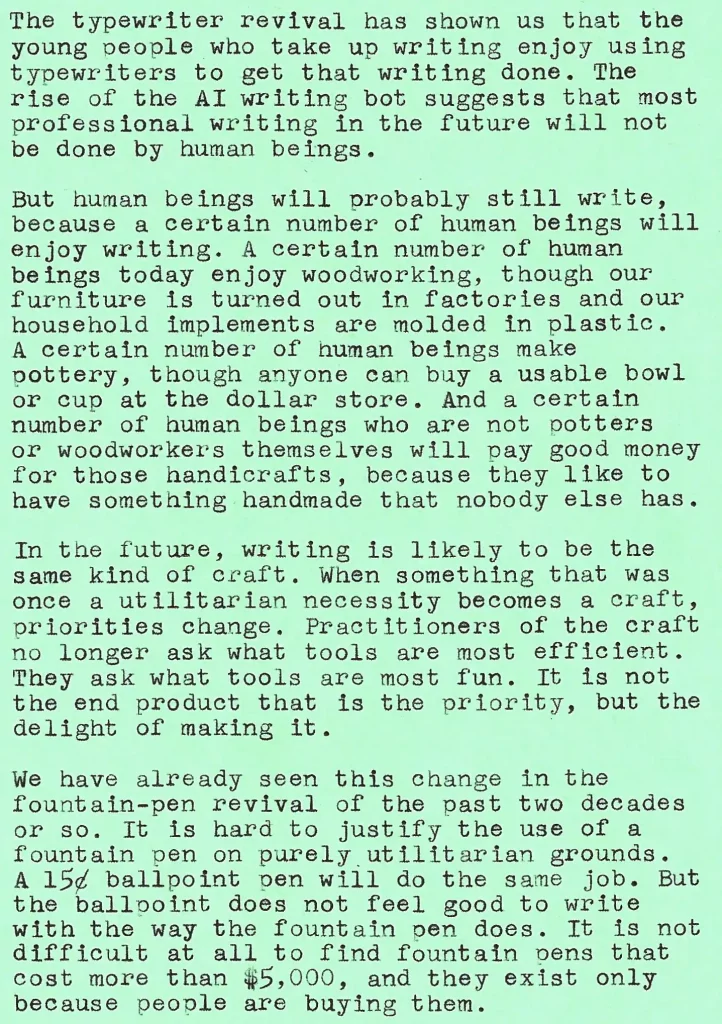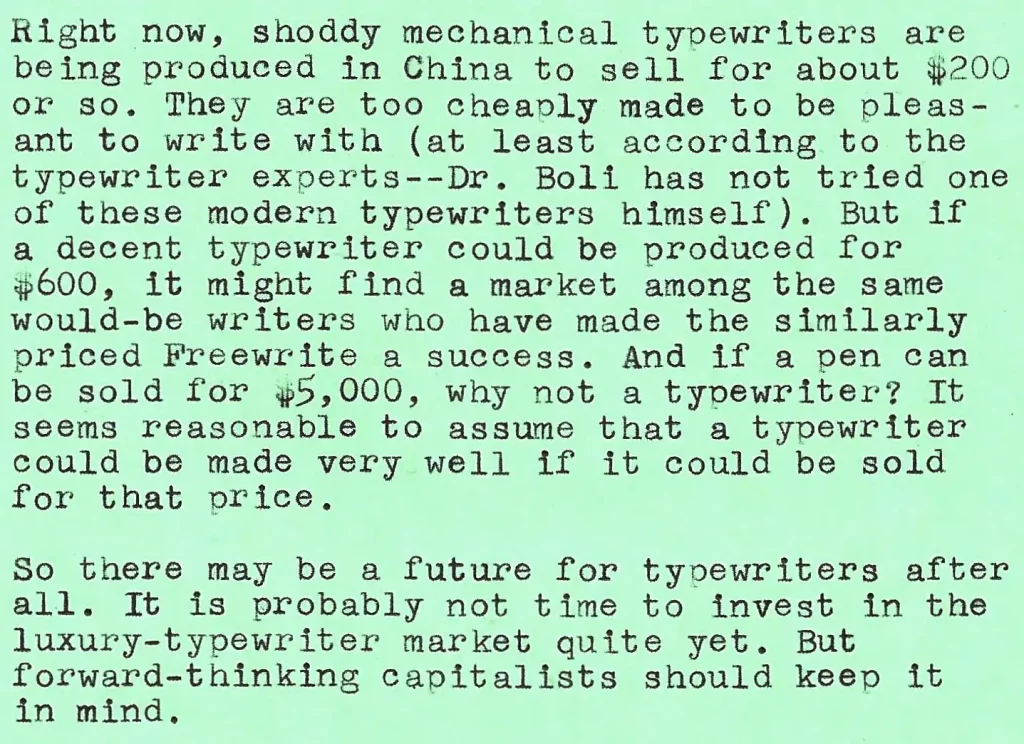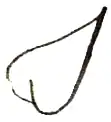


Transcribed below. The typewriter is a 1950 Royal Quiet De Luxe with Pica type.
Will anyone still be using typewriters fifty or a hundred years from now?
About ten years ago, Dr. Boli wrote an essay on that question (which for some reason he never published, but he just ran across it today), and the answer he came up with was no. He could imagine certain eccentric historians using typewriters, the way certain eccentric historians build and sail Viking longboats, so that they can smugly declare that they have first-hand experience of the ways of people of the past. But he did not expect that ordinary writers would be using typewriters far into the future.
Things have changed in the past ten years, however, and now Dr. Boli is considering revising his prediction. (Since he never did publish it in the first place, he would like some credit for admitting that he was wrong even when there is no evidence of his error.) He is not ready to predict with confidence that typewriters have a glorious future ahead of them, but he is no longer ready to consign them to gradual obsolescence.
Two big things have happened to change Dr. Boli’s mind. The first is the typewriter revival of the past few years, which has created a demand for typewriters and driven up the prices of the good ones. The second is the rise of writing by artificial intelligence, which is still in its early stages, but which shows every sign of taking over the utilitarian branches of the craft of writing.
The typewriter revival has shown us that the young people who take up writing enjoy using typewriters to get that writing done. The rise of the AI writing bot suggests that most professional writing in the future will not be done by human beings.
But human beings will probably still write, because a certain number of human beings will enjoy writing. A certain number of human beings today enjoy woodworking, though our furniture is turned out in factories and our household implements are molded in plastic. A certain number of human beings make pottery, though anyone can buy a usable bowl or cup at the dollar store. And a certain number of human beings who are not potters or woodworkers themselves will pay good money for those handicrafts, because they like to have something handmade that nobody else has.
In the future, writing is likely to be the same kind of craft. When something that was once a utilitarian necessity becomes a craft, priorities change. Practitioners of the craft no longer ask what tools are most efficient. They ask what tools are most fun. It is not the end product that is the priority, but the delight of making it.
We have already seen this change in the fountain-pen revival of the past two decades or so. It is hard to justify the use of a fountain pen on purely utilitarian grounds. A 15¢ ballpoint pen will do the same job. But the ballpoint does not feel good to write with the way the fountain pen does. It is not difficult at all to find fountain pens that cost more than $5,000, and they exist only because people are buying them.
Right now, shoddy mechanical typewriters are being produced in China to sell for about $200 or so. They are too cheaply made to be pleas – ant to write with (at least according to the typewriter experts–Dr. Boli has not tried one of these modern typewriters himself). But if a decent typewriter could be produced for $600, it might find a market among the same would-be writers who have made the similarly priced Freewrite a success. And if a pen can be sold for $5,000, why not a typewriter? It seems reasonable to assume that a typewriter could be made very well if it could be sold for that price.
So there may be a future for typewriters after all. It is probably not time to invest in the luxury-typewriter market quite yet. But forward-thinking capitalists should keep it in mind.

Leave a Reply